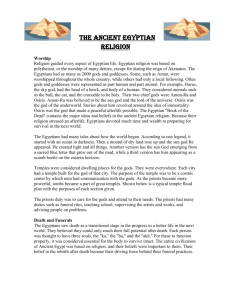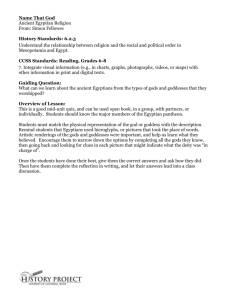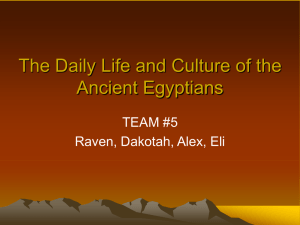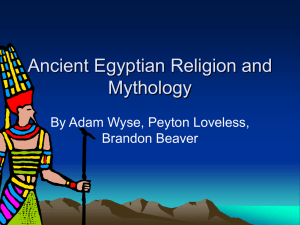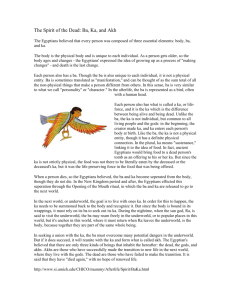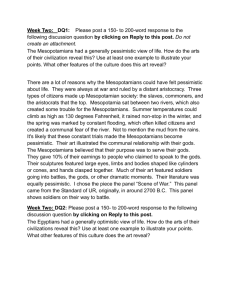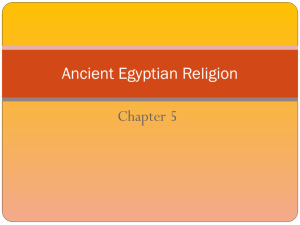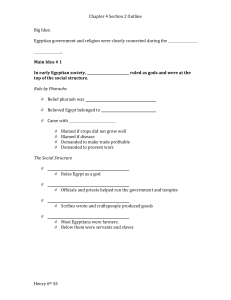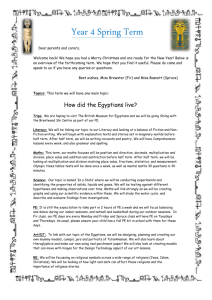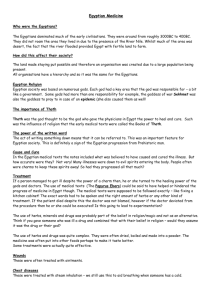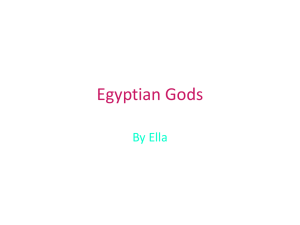Ancient Egyptian Religion
advertisement
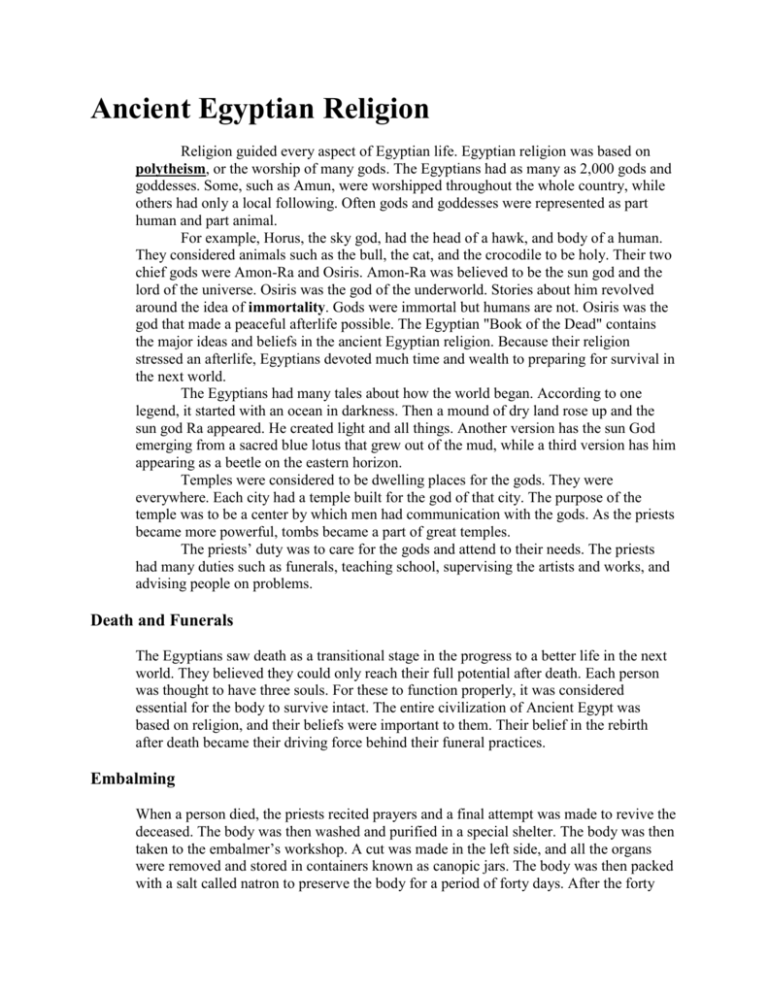
Ancient Egyptian Religion Religion guided every aspect of Egyptian life. Egyptian religion was based on polytheism, or the worship of many gods. The Egyptians had as many as 2,000 gods and goddesses. Some, such as Amun, were worshipped throughout the whole country, while others had only a local following. Often gods and goddesses were represented as part human and part animal. For example, Horus, the sky god, had the head of a hawk, and body of a human. They considered animals such as the bull, the cat, and the crocodile to be holy. Their two chief gods were Amon-Ra and Osiris. Amon-Ra was believed to be the sun god and the lord of the universe. Osiris was the god of the underworld. Stories about him revolved around the idea of immortality. Gods were immortal but humans are not. Osiris was the god that made a peaceful afterlife possible. The Egyptian "Book of the Dead" contains the major ideas and beliefs in the ancient Egyptian religion. Because their religion stressed an afterlife, Egyptians devoted much time and wealth to preparing for survival in the next world. The Egyptians had many tales about how the world began. According to one legend, it started with an ocean in darkness. Then a mound of dry land rose up and the sun god Ra appeared. He created light and all things. Another version has the sun God emerging from a sacred blue lotus that grew out of the mud, while a third version has him appearing as a beetle on the eastern horizon. Temples were considered to be dwelling places for the gods. They were everywhere. Each city had a temple built for the god of that city. The purpose of the temple was to be a center by which men had communication with the gods. As the priests became more powerful, tombs became a part of great temples. The priests’ duty was to care for the gods and attend to their needs. The priests had many duties such as funerals, teaching school, supervising the artists and works, and advising people on problems. Death and Funerals The Egyptians saw death as a transitional stage in the progress to a better life in the next world. They believed they could only reach their full potential after death. Each person was thought to have three souls. For these to function properly, it was considered essential for the body to survive intact. The entire civilization of Ancient Egypt was based on religion, and their beliefs were important to them. Their belief in the rebirth after death became their driving force behind their funeral practices. Embalming When a person died, the priests recited prayers and a final attempt was made to revive the deceased. The body was then washed and purified in a special shelter. The body was then taken to the embalmer’s workshop. A cut was made in the left side, and all the organs were removed and stored in containers known as canopic jars. The body was then packed with a salt called natron to preserve the body for a period of forty days. After the forty days had passed, the insides were filled with cloth and natron. The body was wrapped in bandages with jewelry between the layers. A portrait mask was placed over the head of the deceased by the Chief Embalmer, who wore a jackal mask to represent the god Anubis. The wrapped body, or mummy, was put into a coffin. Burial Tombs 1. 2. 3. 4. 5. 6. After a period of about 70 days, in which the mummification process took place, the mummy was placed in a decorated coffin. Furniture, carved statues, games, food, and other items useful to the next life were prepared to be buried with the mummy. The last ritual performed by the priest on the mummy was called the “Opening of the Mouth.” This ceremony was to magically give the deceased the ability to speak and eat again, and to have full use of his body. After placing the mummy in the sarcophagus, the tomb was sealed. Questions What is polytheism? What is immortality? Why did Egyptians prepare for survival in the next world? What is the “Book of the Dead”? What were the priests’ jobs? How is religion important to Egyptians at their death and funeral?
